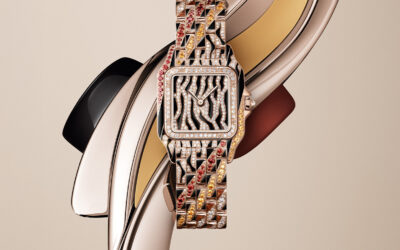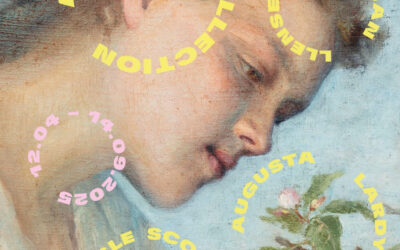Brunello Cucinelli: An Architect of Humanistic Capitalism and Cultural Renewal
by Cinzia Malvini
On 3 April 2025, the University of Campania “Luigi Vanvitelli” in Caserta bestowed upon Brunello Cucinelli the honorary doctorate in “Design for Made in Italy: Identity, Innovation and Sustainability.” The ceremony, held in the majestic Aula Magna of the University’s Rectorate, celebrated not only Cucinelli’s entrepreneurial prowess and cultural sensitivity but also his capacity to elevate Italian design to new heights.
In his Lectio Doctoralis, entitled Il Genius Loci, Maestro delle Arti, the Umbrian stylist and creative visionary addressed an audience of eminent academics, dignitaries, and friends from around the globe. His discourse examined the interconnection between beauty, the spirit of place, and a novel vision for sustainable, humanistic capitalism—a “Tempus Novum” in which profit harmoniously coexists with the preservation of cultural and spiritual values.
Cucinelli’s address was a profound reflection on the intimate relationship between art, architecture, and human dignity. He spoke of the Genius Loci – the spirit of the place – as an essential guide in understanding both the natural environment and the cultural identity of a community. “I learned,” he recalled, “in the countryside of Castel Rigone, where nature was both my teacher and my muse, that the rhythms of Creation are intrinsic to the beauty and order of the world.” His words evoked the timeless wisdom of ancient Greek philosophers, reminding the assembled scholars of the imperative to “know thyself” and to pursue moderation in all things.
The conversation naturally turned to the concept of humanistic capitalism. Cucinelli argued that business need not be divorced from the welfare of humanity. Rather, he proposed a model in which commerce serves as a vehicle for cultural and social progress. Drawing on the teachings of Kant – specifically, the dictum to treat humanity always as an end in itself – he asserted that economic activity should enrich society rather than diminish the moral and spiritual fabric of our communities. “It is possible,” he stated, “to build enterprises that honour the dignity of every human being and contribute positively to our collective future.” His vision was one of enlightened entrepreneurship: a synthesis of rigorous innovation and a deep commitment to ethical values.
Central to Cucinelli’s philosophy is his belief in the transformative power of art and architecture. He reflected on the lessons of great masters—from Saint Benedict and Saint Francis, whose humility and simplicity remain inspirational, to the architectural giants of Antiquity and the Renaissance. In his own words, he is “an architect of enterprise,” someone who applies the principles of solid, useful, and beautiful design to every aspect of his work.

Cucinelli recalled the influence of Luigi Vanvitelli, the distinguished architect behind the Royal Palace of Caserta, whose legacy continues to illuminate the Italian aesthetic. “Vanvitelli’s work,” he noted, “embodies the classical spirit of renewal, marrying tradition with innovation in a way that inspires us to build for eternity.”
His lecture, rich with personal anecdotes and historical allusions, also addressed the challenges and opportunities faced by today’s youth. Cucinelli emphasised the need for a new humanistic revolution, one in which the next generation embraces both the rigour of modernity and the timeless values of art and culture. “To the young minds gathered here,” he declared, “I offer my hope and trust. May you lead with both wisdom and compassion, ensuring that our future is as radiant as the heritage we inherit.”
A particularly poignant passage from his lecture encapsulates his philosophy:
“Most Honourable Rector, Rectors of other universities, Deans, Professors, distinguished authorities, and dear friends, whose presence enhances the joy of this day, I thank you wholeheartedly. My origins lie in rural life—a condition deeply intertwined with nature. From nature, I learned the laws of Creation and the language of the Genius loci (Spirit of the Place), which were my first guides in understanding the relationship between nature, art, and beauty, as well as that way of living in accordance with nature so cherished by my esteemed Greek masters. In the farmhouse in the countryside of Castel Rigone, where I spent my beautiful and sweet childhood, I learned to ‘live in harmony with Creation.'”
This excerpt, drawn from his Lectio Doctoralis, eloquently summarises his lifelong journey, one that began in the rustic landscapes of Umbria and culminated in the creation of a new model of capitalism, one that prioritises both profit and human well-being.
Cucinelli’s achievements have long been celebrated as emblematic of a refined, Italian approach to business and art. His leadership at the helm of the Brunello Cucinelli brand has consistently elevated the Made in Italy tradition, transforming it into a global benchmark for excellence in both design and social responsibility. The honorary doctorate is not only an acknowledgement of his business acumen but also a tribute to his profound impact on cultural and ethical discourse.
Moreover, the event underscored the vital role of academia in nurturing and transmitting the knowledge that underpins creative and entrepreneurial endeavours. The presence of esteemed guests—including the Minister for University and Research, Professor Ornella Zerlenga, and Professor Alessandra Cirafici—reinforced the message that the pursuit of knowledge and the commitment to cultural heritage are indispensable to the progress of society.
For Cucinelli, the convergence of art, architecture, and enterprise is not merely an abstract ideal but a tangible reality that guides every decision. His impassioned belief in the dignity of the human spirit and the transformative power of culture continues to inspire a generation of innovators and creators. In his vision, the integration of ethical values into the realm of business serves as a beacon for a more humane and sustainable future.
As the ceremony drew to a close, the words of the Rector, Professor Gianfranco Nicoletti, resonated with the assembled audience: “The conferment of this doctorate is a well-deserved recognition for an individual who has not only elevated the standards of Made in Italy but has also demonstrated that true progress lies in balancing economic success with a commitment to human dignity and cultural richness.”
In a world increasingly driven by profit and efficiency, Brunello Cucinelli’s honorary degree stands as a testament to the enduring power of humanistic values. His message, a call for an enterprise that nurtures both the mind and the spirit, offers a blueprint for a future in which innovation and tradition coalesce in the pursuit of a more enlightened, sustainable society. With a profound sense of gratitude, Cucinelli concluded his lecture by dedicating his achievement to his family and to the younger generations. His final words served as a reminder that, in the intricate tapestry of human endeavour, every thread of cultural heritage is essential to the creation of a brighter, more inclusive future.
In this moment of academic celebration and cultural reflection, the legacy of Brunello Cucinelli – as an entrepreneur, an artist, and a guardian of humanistic values – was once again affirmed. His journey, marked by the harmonious blend of tradition and innovation, continues to illuminate the path towards a Tempus Novum, where the balance between profit and the common good is not only achievable but essential.




